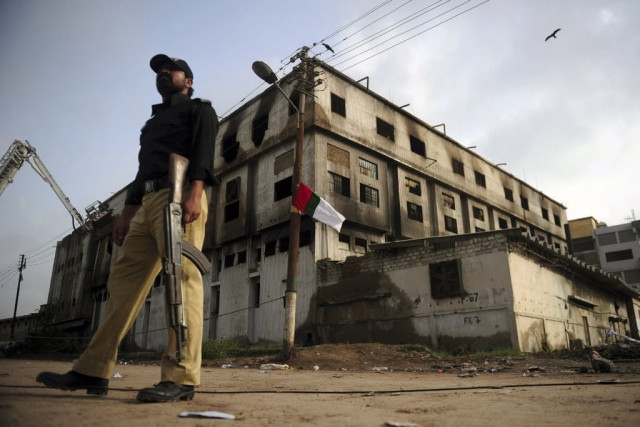Comment: The silence of the urban industrial elite
Why nobody in the industry is willing to speak against Ali Enterprises.

Despite the glare of the media on the fire at Ali Enterprises, much is still unknown about the conflagration, how it started and who shares how much blame. But as journalists try to find out more about the fire, the factory and its owners, one thing is becoming increasingly clear: nobody who knows anything about these people is willing to say anything.
Indeed, virtually every person affiliated with the textile industry who spoke to The Express Tribune claimed to not know anything about the factory, what it produced or which European brands it sold to. This is the kind of information that, before the fire, would have taken our reporters less than a few hours’ worth of investigating to find out. But after the fire, an invisible memo seems to have gone out to the textile industry’s magnates: stay quiet or they will lynch you.
Indeed, the few people who did say anything felt the need to remind us that this fire will damage Pakistan’s exports. That nearly 300 people died a horrific death in the factory seemed, at best, a parenthetical concern for them.
The reason for this silence is easy enough to explain. It exposed the dirty little secret that the industrial elite of Pakistan has been hiding for a very long time: their wealth and power is dependent on the very same kind of exploitative behaviour that they never seem to tire of accusing the rural aristocratic elite of. Ali Gul Pir made a hilarious video mocking the arrogance of the “waderey ka beta” (the rural aristocrat’s son), but he may as well have said the same thing about the children of the urban elite.
The problem for this elite now is that they can no longer hide this inconvenient truth. And so they all choose to remain silent. Had this not been the case, the owners of Ali Enterprises would have had a reasonable defence: industrial accidents can happen even at factories that follow the strictest of safety procedures. Fires can spread quickly in a place that has lots of cloth and cotton. And it can get difficult to manage a panicked crowd once a fire starts.
It may yet turn out that the factory owners did the best they could. If that is the case, then we all owe them a great apology for assuming the worst about them. If not, then the factory should be handed over to the employees as shareholders. The owners’ remaining assets could be seized as further compensation to recapitalise the company. And the faculty of business schools like IBA or LUMS might be persuaded to help the new shareholders hire a new management team.
But the industrial elite as a whole knows that this is not just about the deaths, though that is the biggest tragedy. It is about the broader issue: the fact that now everybody knows that they do not pay minimum wage to most of their workers, or provide them with a safe working environment, or really any benefits of any kind. Everyone now knows that they treat their employees like scum. The few who do not are not scared of anyone, even now.
Disasters like this have occurred in every nation’s early industrialisation process. New York had a horrific textile factory fire in 1913, leading the United States to enact more protective legislation for workers. Pakistan probably does not need more legislation. But we do need much more vigorous enforcement and that is a goal we should start striving towards. Let us not let the deaths of those who perished be in vain.
Published in The Express Tribune, September 15th, 2012.


















COMMENTS
Comments are moderated and generally will be posted if they are on-topic and not abusive.
For more information, please see our Comments FAQ